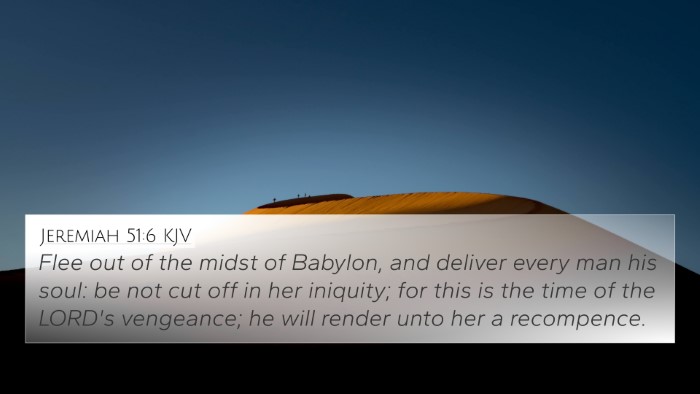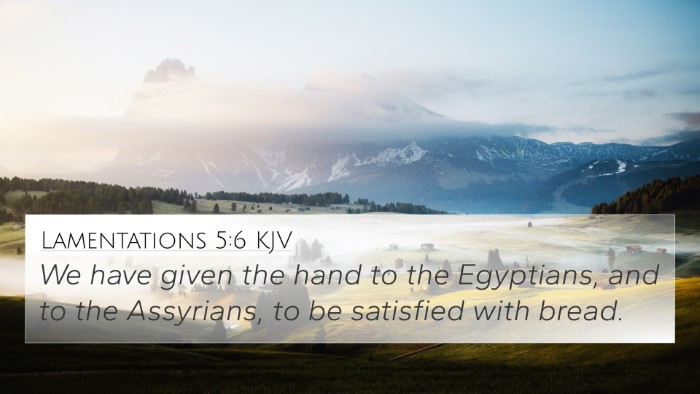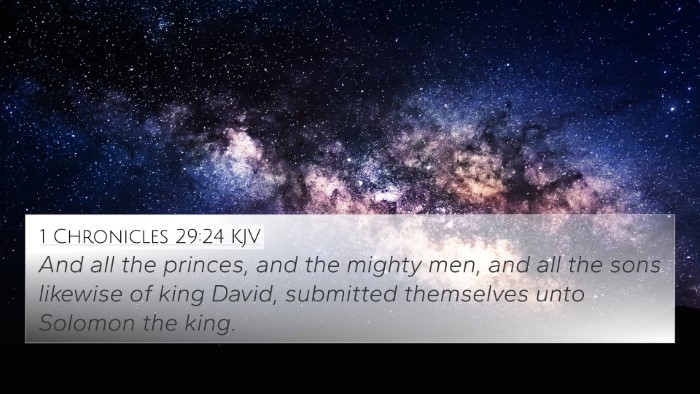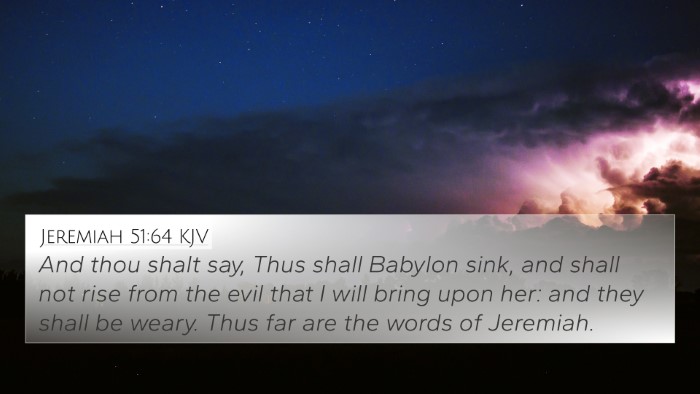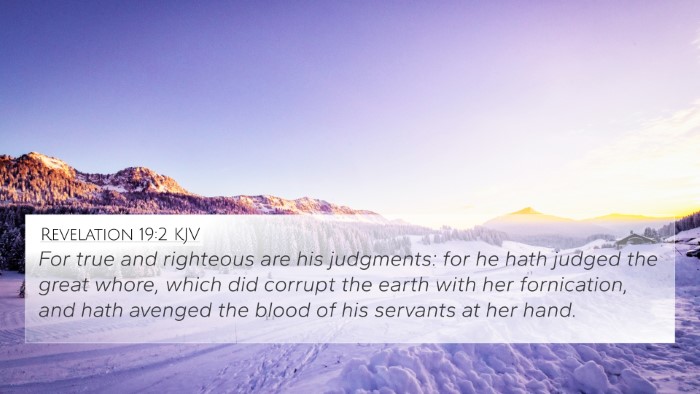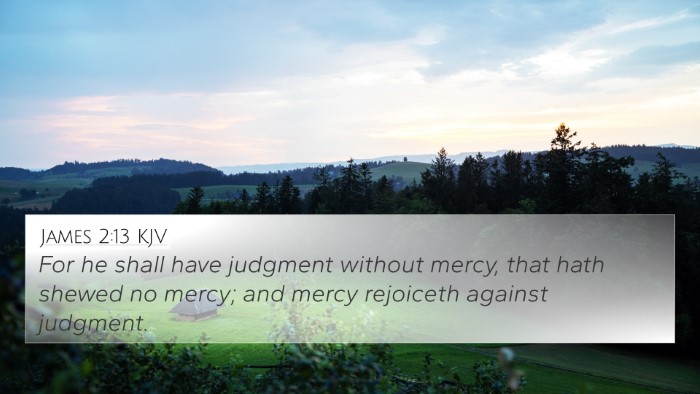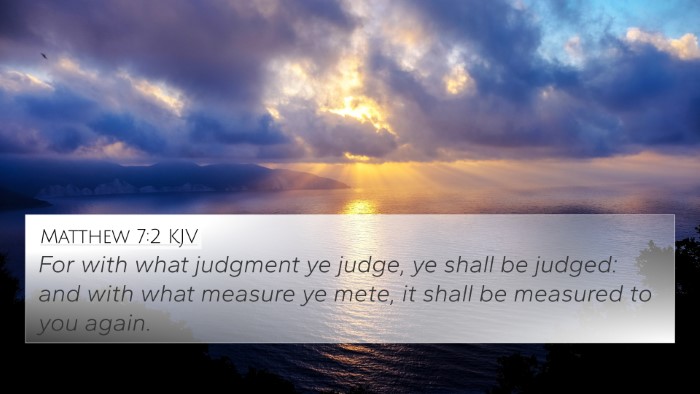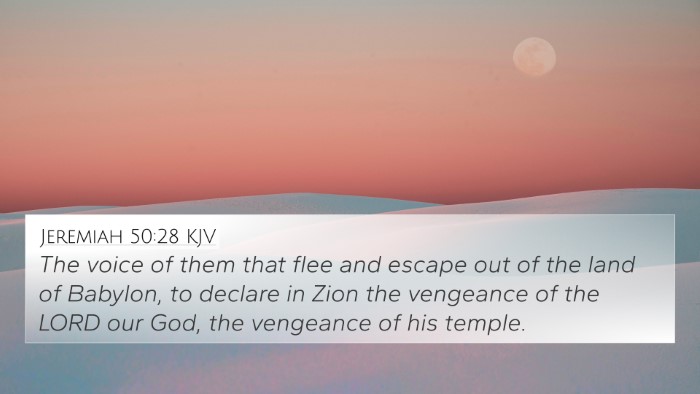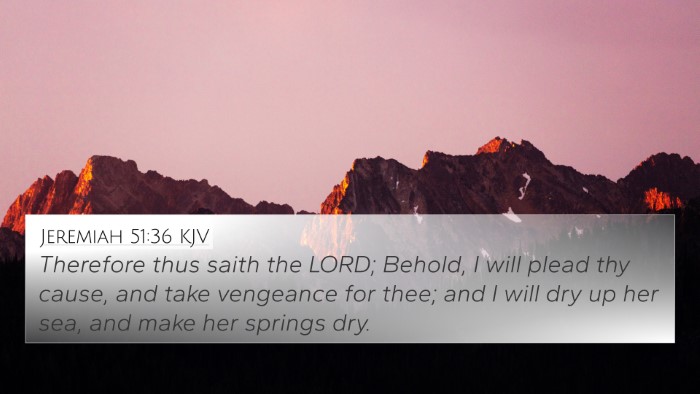Understanding Jeremiah 50:15
Jeremiah 50:15 reads: "Shout against her round about: she hath surrendered; her towers are fallen, her walls are thrown down: for it is the vengeance of the Lord: take vengeance upon her; as she hath done, do unto her."
Context and Commentary Insights
This verse is part of Jeremiah's prophecy concerning Babylon’s impending judgment. The pronouncement indicates not only the fall of Babylon but also emphasizes the justice of God as the executioner of divine retribution. Let's explore the insights from Matthew Henry, Albert Barnes, and Adam Clarke, which bring depth and clarity to our understanding of this text.
Matthew Henry's Commentary
Matthew Henry elaborates on the theme of divine judgment, stating that God utilizes various means, including nations and circumstances, to fulfill His purpose. In this passage, Babylon is personified and called to acknowledge her downfall. Babylon's towers and walls, symbols of pride and security, are seen as utterly forsaken.
Albert Barnes' Perspective
Albert Barnes emphasizes the notion of vengeance in this context. He interprets "vengeance of the Lord" as a divine retribution that serves both as a punishment for Babylon's sins and a warning to other nations. His commentary underscores the principle of divine justice and the certainty that sin will not go unpunished.
Adam Clarke's Analysis
Adam Clarke notes the prophetic nature of this message, suggesting that it serves as a call to action for those witnessing the fall of Babylon. Clarke draws attention to the historical context, pointing out that the destruction of Babylon was seen by the Israelites as a necessary step for their deliverance from oppression.
Thematic and Cross-Referencing Insights
The verse serves as a vivid declaration of God’s sovereignty over nations and serves thematic connections with various passages throughout the Bible concerning judgment and human pride. Here are some relevant cross-references:
- Isaiah 13:19-22: Discusses the devastation of Babylon, highlighting its ultimate desolation.
- Revelation 18:2: Refers to the fall of Babylon the Great, representing the finality of God’s judgment.
- Jeremiah 51:24: Relates to God’s vengeance against Babylon for its treatment of Israel.
- Psalm 137:8-9: Expresses the sorrow of the Israelites over the destruction of Babylon and the Lord’s judgment.
- Zechariah 2:7: Speaks to the promise of deliverance from Babylonian captivity.
- 2 Thessalonians 1:6: Affirms that God will repay with affliction those who afflict His people.
- Proverbs 11:21: Enforces the principle that the wicked will not go unpunished, aligning with the themes of justice in Jeremiah.
- Matthew 7:2: Echoes the sentiment of divine retribution in the measure you use, it will be measured against you.
Implications of the Verse
This passage serves as a sobering reminder of divine justice and retribution. It invites readers to reflect on human pride, the consequences of sin, and the assurance of God's ultimate control over historical and personal events. The concept that “as she hath done, do unto her” speaks to the biblical principle of sowing and reaping, a theme prevalent throughout Scripture.
Tools for Bible Cross-Referencing
For those interested in further exploring connections between Bible verses, several resources and methods can enhance your study:
- Bible Concordance: A vital tool for identifying words and their occurrences throughout Scripture.
- Bible Cross-Reference Guide: Provides systematic links between related verses across different books.
- Cross-References for Sermon Preparation: Helps in creating well-rounded sermons based on interconnected Scriptures.
Conclusion
In summarizing Jeremiah 50:15, it becomes evident that this verse encapsulates the themes of judgment, divine vengeance, and the ultimate fall of prideful nations. By employing tools for cross-referencing and understanding the interconnectedness of Scriptures, one can gain deeper insights into the word of God. As biblical scholars have elucidated, every prophecy carries weight not just in historical context but in spiritual teaching and application.
Further Study and Reflection
As you continue your journey in studying this chapter, consider how the themes of divine justice and accountability resonate with contemporary issues. Reflect on your own life and the implications of the justice of God.






